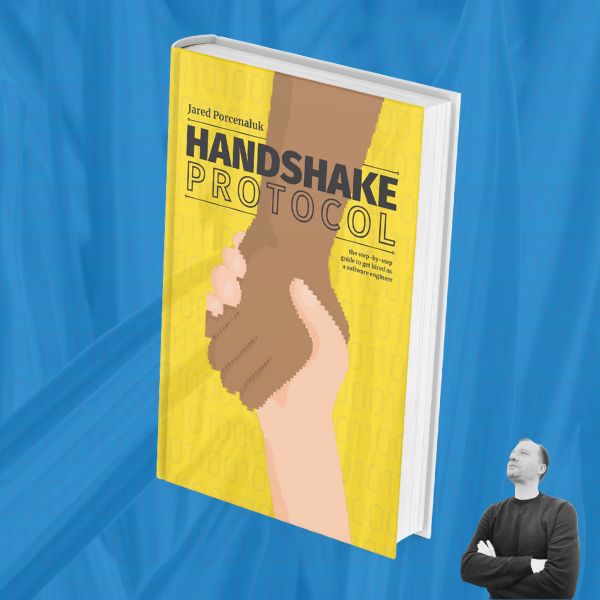It’s so tempting to say “yes.” There it is, sitting in your email, with the words:
Congratulations! We're pleased to extend this offer...
But is it a gift, or a trojan horse? It can be so easy to just reply confirming you’re acceptance, but there’s a little niggle in the back of your mind where you feel something might be wrong.
Let’s talk about that. Even after submitting the resume, the multiple interviews, and potentially salary negotiation, you’ve still every opportunity to walk away from a job offer. And here’s a few good reasons why.
The Salary Is Too Low
If you’ve already attempted to negotiate the salary and they haven’t raised it above your minimum, assuming you’ve arrived at that number sanely, it’s ok to walk away. The alternative is to accept the job without much excitement. That’s not starting out on the right foot and is all but guaranteed to cause resentment down the line. Worse than that, if the salary isn’t enough to cover your basic necessities (rare with even entry-level software engineering positions, but possible) you may be forced to find another job. Save yourself the time and effort, and walk away.
Draconian Contract
Sometimes employers will attempt to slip absurd criteria in with their contracts. While contract terms do not always come to pass (it may say something like “50% travel” but you don’t actually travel that much), it’s still a legally binding document. If you aren’t willing to follow it to the letter, don’t sign it. Some examples of contract terms you may not want to entertain:
- Required overtime (e.g. 45 or 50 hour weeks by default)
- “Unlimited vacation” – depending on the work environment, that could mean “no vacation”
- Clauses about not working for competitors for a long time period after leaving
- Required pager duty (you may need to get up at 2 a.m. to fix outages)
Do not sign anything you are not comfortable or unwilling to do.
You Aren’t Remotely Excited
Bad vibes? Even with an offer letter in your inbox, it’s not too late to walk away (it’s actually never too late). Even if you can’t to point to exactly why you are put off by working there, you’re gut feeling is enough. With retrospection, you may find something tipped you off: the company’s mission, the attitude of an interviewer, or maybe something else told you that this might not be the company to work for.
Skill Mismatch
If you went through the interview process and found out more about the job and realized that you don’t think you’re qualified for the position, it could simply be a case of imposter syndrome. Many candidates can feel they don’t have 100% of the skills required to do the job, and most of the time that’s ok. Growth is an expected part of doing a new job, so even if you’re missing a few skills that have been mentioned through the hiring process, as long as you feel you can gain them quickly there’s no issues.
However, if you feel that as you learn more about the job, it feels further and further left-field of what you are capable of (or what you want to do), turn it down. Never getting the job is preferred to landing a job that you are incapable of doing or is directing you down a career path you don’t want to go.
As an example, if you’re looking for an entry-level software engineering role and you are offered a software testing role, I’d think twice before accepting. If testing is your jam, sure. If you see it as a stepping stone to help get you closer to what you want to do, that may be fine as well. But if you really want to write code, it may not be a good match.
It Was Too Easy
This is difficult to quantify, but if you absolutely sailed through the hiring process, I’d turn a skeptical eye toward that job. Especially as a junior software engineer, you should expect to be grilled at every stage as employers attempt to weed out candidates that aren’t a good fit. Were you not asked to do a technical interview? Were there no interviews with real people on the other side, or did they seem wholly unqualified?
You may have just been extended an offer to work for a “code factory,” where developers work their fingers to the bone and there’s high turnover (“butts in seats” is that company’s goal for hiring). Alternatively, it could simply be a scam. Whatever the case, if you feel you didn’t get a chance to shine and show off your communication skills, experience, and expertise throughout the interview process, it’s a red flag.
The Alternative
When you get that offer letter, there ought to be a little skip in your step. You found a company you wanted to work for, you went through the resume-submitting stage, interviewed, and got an offer you are happy about. When you feel that, you’ve probably got a winner on your hands.

Leverage my ten years of software engineering experience to find a tech job that matters, get hired, and get paid what you deserve.
It’s all in my book, Handshake Protocol – the step-by-step guide to getting hired as a software engineer.



